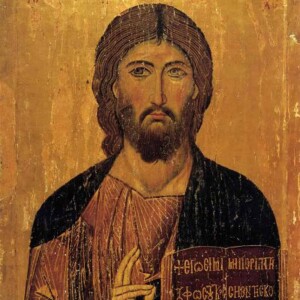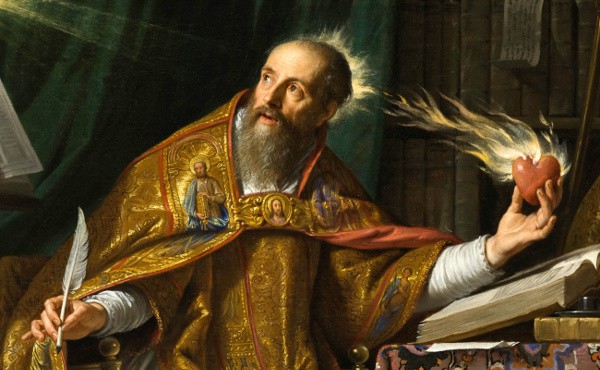
The History of the Christian Church
Religion & Spirituality:Christianity

This episode of CS is titled “Augustine – Part 2.”Augustine wrote a work called Retractions in which he lists the many books and treatises he’d penned. Each work is given a summary and additional notes are added charting the development of his thought over time.He wrote some 113 books & treatises, close to 250 letters, some of which are treatises themselves, and 500 sermons.Here’s a rundown on some of them …The best introduction to Augustine’s thoughts is his Enchiridion – also known as On Faith, Hope, & Love. The section on faith is an exposition of the Apostle’s Creed. Hope is captured in the Lord’s Prayer, while Love is the summary of the Commandments.On Christian Teaching is Augustine’s theology of Scripture; what it teaches, how it ought to be understood, and a practical theology on how to share it. It’s here he developed the foundational principle of the analogy of faith. It establishes the rule that no teaching which is contrary to the general tenor and story of the Scriptures can be developed from any particular passage. The history of heresy and pseudo-Christian cults makes clear most of them violate this basic rule of hermeneutics.On Catechizing the Uninstructed gives both a long and short form for how to deal with inquirers.Augustine’s On the Good of Marriage affirms the benefits of marriage as bringing children into the world, protecting fidelity, and serves as a picture of Christ and the Church. Although, keeping with the sensibilities of the time, it made clear the superior position of celibacy.Shortly after arriving back home in Tagaste, around 389, Augustine wrote what is probably his most famous work – Confessions. The word meant more then than it typically does today. Yes, it bears his confession of sin, but Augustine also meant the word as his profession of faith and a declaration of the goodness of God. Completed by 401, it lays bare his soul. He describes his life before conversion, the events leading to his conversion, and his path back to North Africa. The Confessions of St. Augustine is counted as one of the greatest autobiographical works of all time. It contains the oft-quoted “You have made us for Yourself, O God, and our hearts are restless until they find their rest in Thee" in the first paragraph. Scholars & students of ancient literature are moved by Augustine’s remarkably candid and perceptive analysis of his struggle with sin. At one point he shares the struggle he had with lust this way. He cried out to the heavens, “Give me chastity and holy desire; Only—not yet.”After the Confessions, Augustine’s most important work, and one he labored on for 14 years is The City of God. This is arguably the climax of Christian Latin apologetics and became the blueprint for the Middle Ages.It began as a response to the Sack of Rome by the Goths in 410. Though Rome was no longer the capital of the Empire, it remained the enduring symbol of it. Pagans loudly protested Rome was sacked because the old gods were furious they’d been forsaken; thrown over for this new deity out of the Middle East name Jesus.Augustine began the work as a reply to this damning charge. It grew into a comprehensive philosophy of history; an eloquent apologetic for what would come to be known as the Providential View of History.Augustine posited 2 cities; One of the world, the other of Heaven. These 2 cities are the result of 2 kinds of love; the love of self and the love of God. It begins with a negative and apologetic part that attacks paganism and its claims against the Faith. The next section is positive and describes Augustine’s philosophy of history. He describes the origin, progress and terminus of both cities. When I say “city” think society, for that is what Augustine meant.Such a description as this, and most others may make it appear Augustine posits the 2 cities as ever distinct. That’s not the case; rather, they are, at least as they are manifest in the world, always confused and mixed; yet ever at odds.In earlier works, Augustine laid out a pattern for history as progressing from . . .
view more
- Before the Law,
- Under Law,
- Under Grace,
- & In Peace.
More Episodes
39-Papas
 2020-10-21
2020-10-21
 2020-10-21
2020-10-21
38-Bárbaros a las puertas
 2020-10-21
2020-10-21
 2020-10-21
2020-10-21
37-Patricio
 2020-09-30
2020-09-30
 2020-09-30
2020-09-30
36-Y Esos Pies
 2020-09-30
2020-09-30
 2020-09-30
2020-09-30
35-Primer Resumen
 2020-09-30
2020-09-30
 2020-09-30
2020-09-30
34-La Gran Recesion
 2020-09-30
2020-09-30
 2020-09-30
2020-09-30
33-Monjes
 2020-09-30
2020-09-30
 2020-09-30
2020-09-30
32-Augustin Parte 2
 2020-09-30
2020-09-30
 2020-09-30
2020-09-30
31-Augustin Parte 1
 2020-09-30
2020-09-30
 2020-09-30
2020-09-30
30-Ambrosio
 2020-09-10
2020-09-10
 2020-09-10
2020-09-10
29-Sincretismo
 2020-09-06
2020-09-06
 2020-09-06
2020-09-06
28-Como dice Justiniano
 2020-09-06
2020-09-06
 2020-09-06
2020-09-06
27-Ortodoxia, con un sabor Oriental
 2020-09-06
2020-09-06
 2020-09-06
2020-09-06
26-Y en el Oriente parte 2
 2020-08-27
2020-08-27
 2020-08-27
2020-08-27
25-Y en el Oriente parte 1
 2020-08-27
2020-08-27
 2020-08-27
2020-08-27
24-¿Porque no podemos llevarnos bien?
 2020-08-20
2020-08-20
 2020-08-20
2020-08-20
23-Y ustedes ¿Quién dicen que es El?
 2020-08-20
2020-08-20
 2020-08-20
2020-08-20
22 Leo
 2019-11-06
2019-11-06
 2019-11-06
2019-11-06
21 El Nuevo Centro
 2019-11-06
2019-11-06
 2019-11-06
2019-11-06
20 Lengua de Oro
 2019-11-06
2019-11-06
 2019-11-06
2019-11-06
012345678910111213141516171819
Create your
podcast in
minutes
- Full-featured podcast site
- Unlimited storage and bandwidth
- Comprehensive podcast stats
- Distribute to Apple Podcasts, Spotify, and more
- Make money with your podcast
It is Free
- Privacy Policy
- Cookie Policy
- Terms of Use
- Consent Preferences
- Copyright © 2015-2024 Podbean.com



